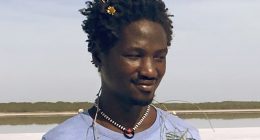When Fariha Róisín started writing Like a Bird, she thought the traumatic event at its heart was just a dream. She explores the weight of a family secret
In her 1861 account Incidents in the Life of a Slave Girl, Harriet Jacobs exposed her sexual abuse by her master with lucidity and truth. Yet for more than 100 years, it was accepted academic opinion that Incidents was a novel, written by white abolitionist Lydia Maria Child. It was not until the 1980s that critic Jean Fagan Yellin proved Jacobs to be the true author; Incidents had been autobiographical all along.
In Hollywood, rape narratives are largely penned by men and seen as a motif, because the tension (and tragedy) of the experience creates sympathy, compassion; it formalises emotion. When we see a woman raped and abused on film we absolve ourselves for watching, because we want to understand the ugliness of human atrocity, or so that’s what we say. And when women write about rape, often in literature, its seen as melodramatic, overemotional, too impossible to be true. “Primarily, rape is considered a women’s issue, though this is, of course, hardly the case,” writes poet Moniza Alvi, in the introduction to Feminism, Literature and Rape Narratives, “and perhaps this is partly why it is considered a literary taboo, particularly when conveyed from a female viewpoint.”




